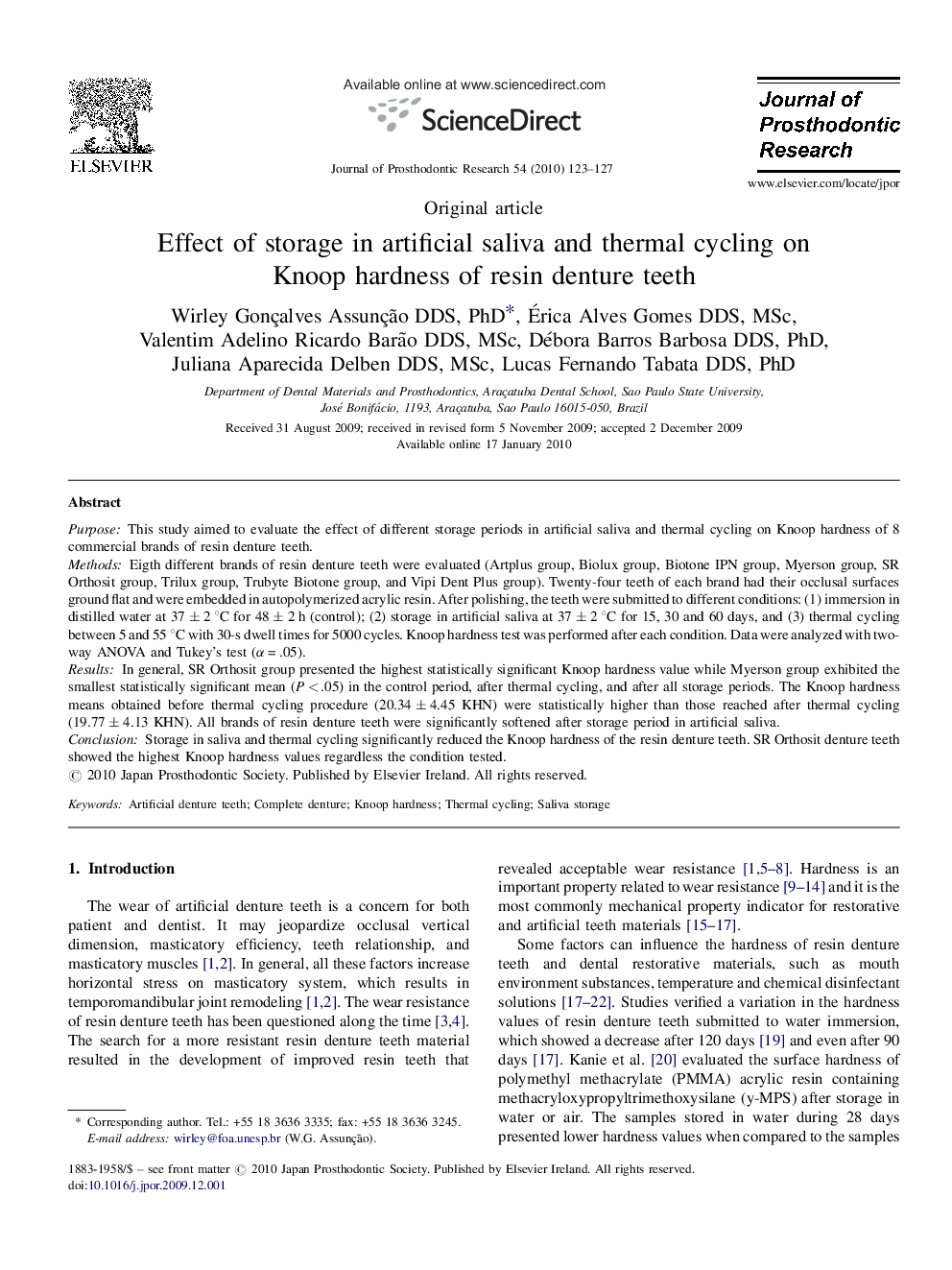| Article ID | Journal | Published Year | Pages | File Type |
|---|---|---|---|---|
| 3160686 | Journal of Prosthodontic Research | 2010 | 5 Pages |
PurposeThis study aimed to evaluate the effect of different storage periods in artificial saliva and thermal cycling on Knoop hardness of 8 commercial brands of resin denture teeth.MethodsEigth different brands of resin denture teeth were evaluated (Artplus group, Biolux group, Biotone IPN group, Myerson group, SR Orthosit group, Trilux group, Trubyte Biotone group, and Vipi Dent Plus group). Twenty-four teeth of each brand had their occlusal surfaces ground flat and were embedded in autopolymerized acrylic resin. After polishing, the teeth were submitted to different conditions: (1) immersion in distilled water at 37 ± 2 °C for 48 ± 2 h (control); (2) storage in artificial saliva at 37 ± 2 °C for 15, 30 and 60 days, and (3) thermal cycling between 5 and 55 °C with 30-s dwell times for 5000 cycles. Knoop hardness test was performed after each condition. Data were analyzed with two-way ANOVA and Tukey's test (α = .05).ResultsIn general, SR Orthosit group presented the highest statistically significant Knoop hardness value while Myerson group exhibited the smallest statistically significant mean (P < .05) in the control period, after thermal cycling, and after all storage periods. The Knoop hardness means obtained before thermal cycling procedure (20.34 ± 4.45 KHN) were statistically higher than those reached after thermal cycling (19.77 ± 4.13 KHN). All brands of resin denture teeth were significantly softened after storage period in artificial saliva.ConclusionStorage in saliva and thermal cycling significantly reduced the Knoop hardness of the resin denture teeth. SR Orthosit denture teeth showed the highest Knoop hardness values regardless the condition tested.
